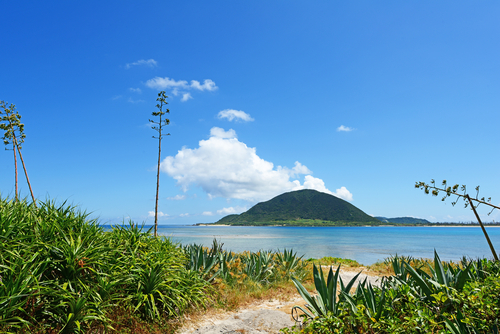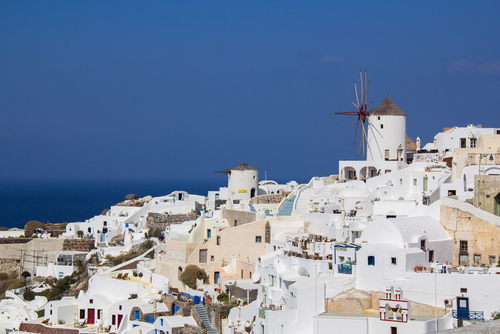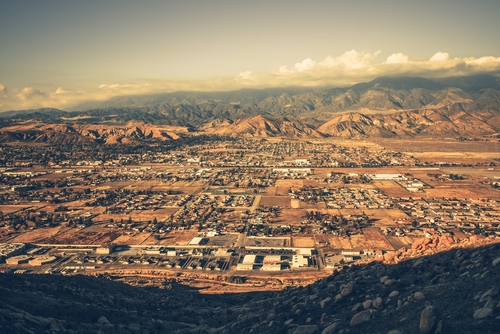Lands of Longevity: Where Do People Live the Longest and What’s Their Secret?
In five places around the world, people live significantly longer than average and maintain good health even in old age. What are their secrets, and can we emulate them?

Some places are just lucky: if you live on the Italian island of Sardinia, for example, you have a pretty good chance of reaching the age of 100. If you move to mainland Italy, however, your chances of reaching triple digits drop significantly.
Why does this happen? It's not because of some special blessing bestowed upon Sardinia, but rather due to factors that can, to some extent, be integrated into our lifestyle, too. Today we know that only 20-30% of the factors determining how long we live are genetic. Everything else depends on lifestyle. While our lives are decreed in the heavens, as Maimonides taught, we are obligated to do our best to maintain our health, and neglecting this responsibility can lead to a shorter life.
So what are the real secrets of the places where people live the longest? Dan Buettner, a National Geographic researcher, dedicated his life to this very subject—mapping the world and identifying locations where people live the longest. The bottom line of his research is what's now known as the 'Blue Zones,' five places in the world where residents live, on average, longer than anywhere else. These places are Okinawa (Japan), Sardinia (Italy), Nicoya (Costa Rica), Ikaria (Greece), and the Seventh-day Adventist community in Loma Linda, California. The percentage of people reaching the age of 100 in these places is 10 times higher than in the United States.
 (Photo: Shutterstock)
(Photo: Shutterstock)Okinawa, Japan
The elderly of Okinawa not only live long lives—but they're also the healthiest and most active seniors in the world and rarely suffer from illnesses associated with aging. How do they do it?
Okinawans are naturally active, says Buettner. They don't go to the gym, but they walk a lot to visit each other, enjoy gardening, and dance frequently. Their cultural philosophy is 'Ikigai'—literally translated as 'the reason you wake up in the morning.' "This philosophy guides people throughout their lives," says Buettner. "It makes centenarians get up from bed and out of their comfortable chairs to teach karate, provide spiritual guidance to young people, or teach traditions to children." And when they do get up—they receive full respect and honor. Family ties in Okinawa are strong, and the elderly, in particular, are honored and treated kindly.
Okinawa's diet is rich in fruits, vegetables, and fibers, and low in salt. Okinawans probably consume more seaweed than any other nation. But it's not only about what they eat but also how they eat: in Okinawa, there's an awareness to avoid overeating. A common saying in the area advises eating 'until you're 80% full.' This way, they avoid gluttony, typically consuming only 1800 calories a day.
 (Photo: Shutterstock)
(Photo: Shutterstock)Sardinia, Italy
The cultural approach in Sardinia respects the elderly and allows them to be integrated and involved in the community and family, even after crossing the age of 100. The important things in Sardinia, says Buettner, are family, respect for elders, and laughter with friends.
In Sardinia, people don’t 'go for a walk'—they naturally walk long distances, which contributes to their good health. When it comes to diet, they focus on plant-based foods: fruits, vegetables, and legumes. The island's shepherds, who live longer than anyone else, also consume large amounts of goat's milk and cheese, with little accompanying carbohydrates.
Nicoya, Costa Rica
People of Nicoya use the concept 'Plan de Vida' to describe 'a sense of purpose in life.' Aside from living with a sense of purpose, they prioritize family and maintain strong social support networks. They also eat light meals, drink lots of water, and moderately expose themselves to sunlight.
The base of Nicoya's diet is beans. In addition to various types of beans, Nicoyans also consume a lot of corn and squash, as well as papayas, bananas, and sweet potatoes. Buettner believes the nutritional value of these fruits and vegetables is the fuel for longevity in the area.
Ikaria, Greece
The people of Ikaria live active yet relaxed lives. They wake up naturally in the morning—without an alarm clock. They work in their gardens, nap after sunset, and cultivate quality relationships with their neighbors.
The diet in Ikaria consists mainly of garden-grown vegetables, legumes, leafy greens, and plenty of olive oil. Meals during the day are fairly regular: breakfast consists of goat’s milk, tea or coffee, honey, and bread. Lunch includes legumes, potatoes, and leafy greens. Dinner almost always includes bread and goat’s milk. Ikarians also drink antioxidant-rich herbal teas, usually made from mint or rosemary.
 (Photo: Shutterstock)
(Photo: Shutterstock)Loma Linda, California
The Seventh-day Adventists living in Loma Linda are an American religious minority who keep Shabbat on Saturday, not Sunday like other Christian groups in the U.S. They have several strict religious rules: church members are not allowed to smoke, drink to intoxication, dance, or watch TV or movies.
What are the secrets of their longevity? Buettner found that they engage in moderate but frequent physical activity, spend a lot of time with each other, perform acts of kindness, eat a light breakfast daily (as the sages noted the benefits of a morning meal), and drink plenty of water.
Most Adventists are entirely vegetarian and mainly consume fruits, vegetables, and nuts. A small portion of them also eat fish. Most of them completely avoid non-natural sugars.
 (Photo: Shutterstock)
(Photo: Shutterstock)The Nine Habits of Longevity
Based on extensive studies conducted in these areas, Buettner identified nine habits common to all the residents, however different they may be from each other. The good news: you can adopt these principles into your life too.
1. Natural movement. Between the gym and gardening, choose gardening.
2. A sense of purpose in life and a reason to get up in the morning.
3. Stress-reduction routines—from daily socializing with friends to a regular afternoon nap.
4. Eating wisely—don't eat until completely full, and consume large meals early in the day, finishing eating in the early evening.
5. Plant-based diet. On average, all longevity communities consume small portions of meat just five times a month.
6. Moderate wine consumption. 1-2 small glasses a day, no more.
7. A sense of belonging to a community and faith.
8. Family first—children care for older parents, marital fidelity, dedication to children.
A healthy and supportive social circle. One of the secrets of these communities, says Buettner, is the way they are surrounded by people who live like them, according to the same healthy and beneficial principles. Want to be healthy and happy? Choose friends who live a healthy and happy lifestyle so you can enjoy longevity together!

